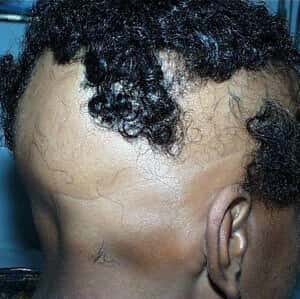
Severe hair loss would distress anyone, but we never expect children to become partly or completely bald. Yet sometimes they develop a condition called alopecia areata that can result in large patches without hair.
Looking for Help for Granddaughter’s Hair Loss:
Q. Can you shed any light on recent studies for alopecia? My 9-year-old granddaughter had a beautiful head of hair, which totally fell out four years ago. She has seen many doctors but nothing has helped.
Is there anything that can be done for this life-altering disease? Any promising studies either here or abroad?
A. A new type of medication now offers some hope. This drug might reduce the ravages of alopecia areata, an autoimmune condition causing severe hair loss. In this condition, the immune system attacks patches of hair follicles, causing partial or complete baldness.
A New Medication for Severe Hair Loss:
Dermatologists at the Cleveland Clinic have reported on a preliminary study. In that research, they gave patients a powerful drug approved for treating rheumatoid arthritis (Ibrahim et al, JAMA Dermatology, online, March 29, 2017). The drug, tofacitinib (Xeljanz), is known as a Janus kinase inhibitor.
The researchers found that people taking tofacitinib grew back some hair, though not everyone responded equally well. Certain people regrew 90 percent of their hair while others saw minimal improvement. In a previous case study, approximately four-fifths of the patients with alopecia areata responded to the drug (Liu et al, Journal of the American Academy of Dermatology, Jan. 2017).
Downsides of Xeljanz:
This medication carries a risk of serious infections or cancer, so it should not be used casually. In fact, FDA requires a black box warning of these potential reactions.
In addition, Xeljanz costs a lot. Insurance programs might not cover its use for severe hair loss.
The good news? This research shows that severe hair loss can be reversed. It may open the door for developing safer treatments for alopecia areata.

